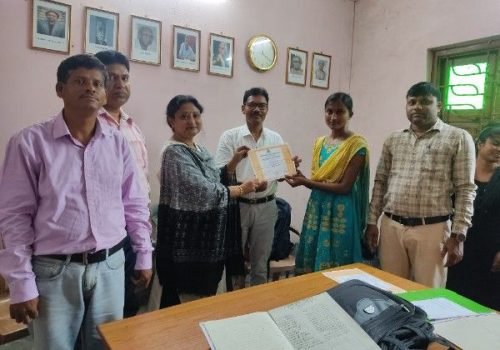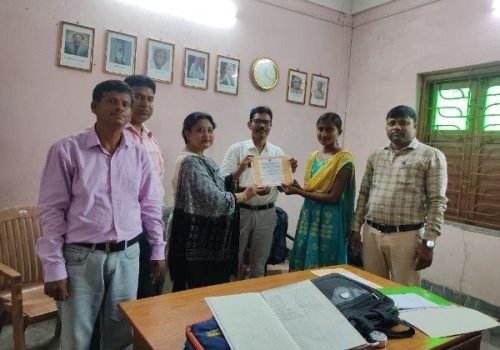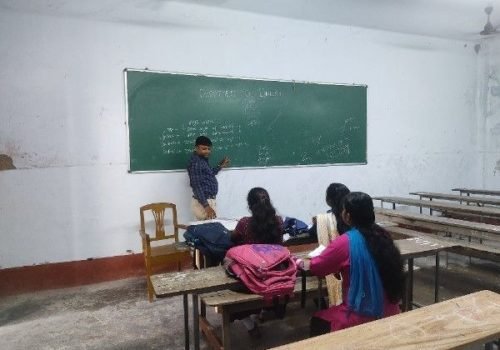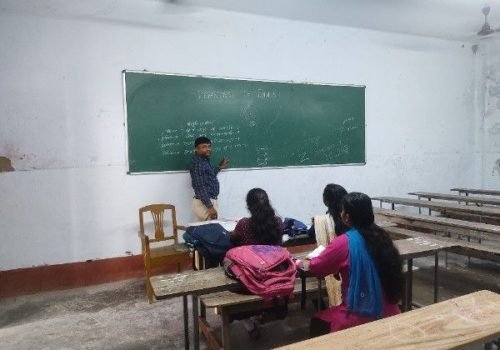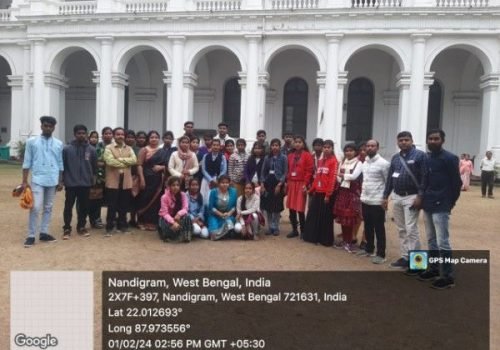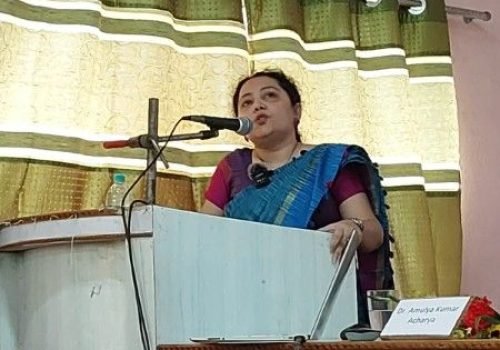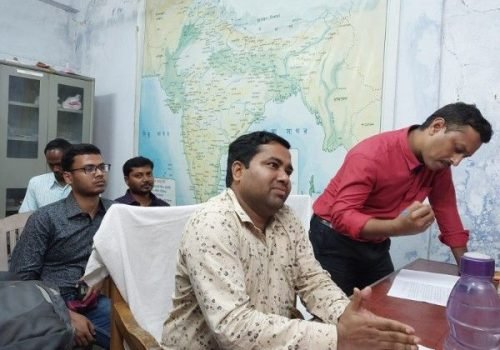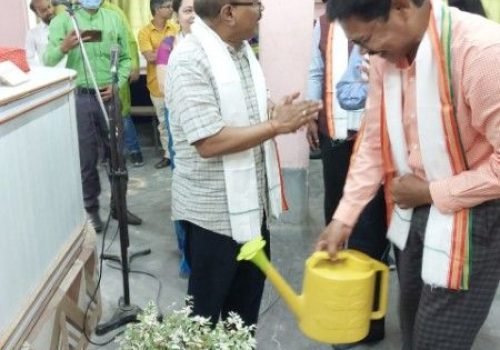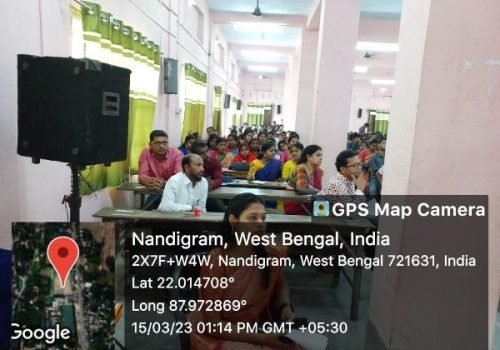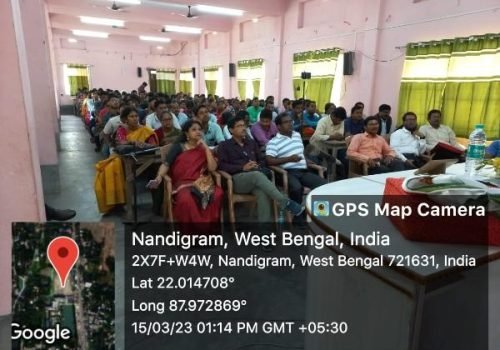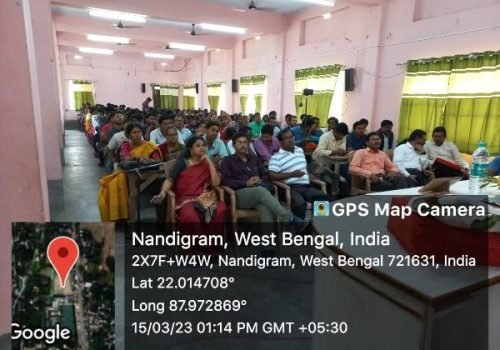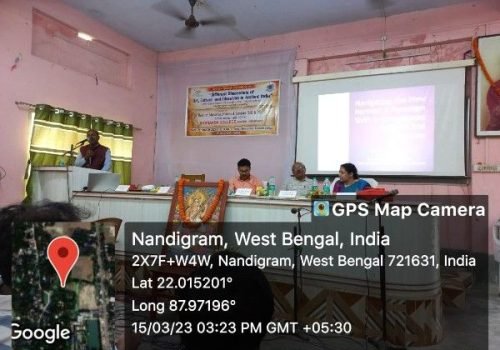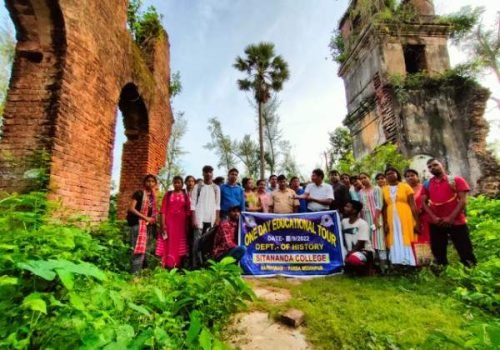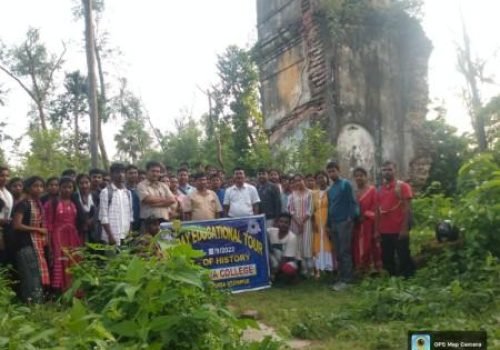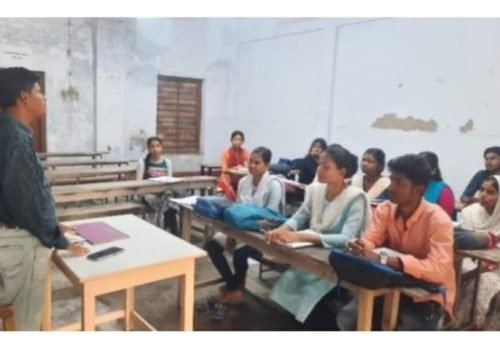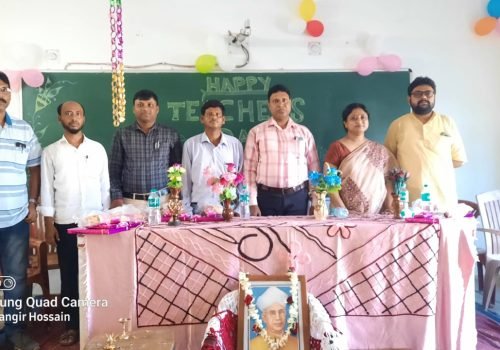History
Our Departments
Announcements
UG 1st Semester Registration Schedule (Session 2025–2026)
Important Notice Regarding Registration Certificate Submission
UG admission Verification notice: Stand alone Mode 1
PG admission notice
About The Department
Vision
- To promote Historical Awareness.
- To encourage Critical Thinking.
- To preserve Cultural Heritage.
- To Follow Interdisciplinary Approach.
- To make Research Excellence.
- Global Perspective.
- Community Engagement and Outreach.
- To promote fostering inclusivity and diversity
- To develop Professional Skills etc.
Mission
- To uplift socially and economically backward students upon a strong foundation of secular, humanitarian world view.
- To contribute to the craving for knowledge and to promote rational thinking.
- To move towards becoming a centre of excellence in Higher Education.
- To provide quality education to our students.
- To reach new peaks in teaching-learning, research and consultancy.
- To create an ambience of culture and consciously promote communal harmony and cultural integration.
- To impart value education coupled with scientific knowledge.
- To create good future citizens for the country of competence, commitment, conscience and compassion.
- To provide opportunities for citizens in getting jobs to maintain livelihood and nation building as well.
Aims & Objectives
- To create awareness, conviction and commitment of the students to social and moral values for improving the quality of life through education.
- To conduct and organise seminars, discourse, dialog, debate, conference, symposiums and public meetings to create and develop academic atmosphere.
- To impart education with up-to-date knowledge of latest developments within all fields of human activities and to the refinements, enhancements and increase of such knowledge application of the same to the moral and material progress of man.
- To grant relief and assistance to the sufferers during natural calamities such as famine, earthquake, flood, fire etc. and to give assistance to institutions, establishments or persons engaged in such relief work. To organize relief camp and relief work in the event of natural calamities, communal riots and social upheaval in any part of the country.
Strength
- Perfect co-ordination between students and Teachers
- Good results
- Quality students
- Quality Teaching etc.
Opportunities
- New technologies
- Good prospects of Job.
- To enrich skill development of the students.
Challenges
- Students with rural background do not get advantages of proper digital communication.
- There is also gender inequality in getting education.
- Poor Financial condition is also barrier to access proper education.
- Most of the students have inadequate knowledge in English and Hindi language.
Future Plans
- To open PG Course in History
- Promotion of Research Culture among faculties and students
- Publication of Research Journal of the Department
- Publication of Research Paper through College website
- Organise National and International Seminar
- Extension of Departmental Library
- Initiative for making Archaeological Museum
- To develop Parent-Teacher interaction
- Progression of the Alumni Association
- Specific programmes to aware students to join different state and central services
- Coaching of different competitive examinations
Departmental Rules
- As per the University norm 75% attendance in class is mandatory for appearing in the final examination.
- Students must return their borrowed items to the Departmental Library before collecting their admit cards for final exam from the office.
- Students have to participate in the various events such as student seminar, workshop, debates, movie screening, wall magazine publication etc. organised by the Department.
- Appearing in Class-Test, Pre-Test, Test Examination is mandatory.
- Students must inform the HoD in written in case of continuous absence in the class for more than seven consecutive days.
- Students must help to maintain a healthy academic atmosphere in the department and must not involve in ragging or harassing anybody.
- Students are requested not to litter and to keep the waste in the dustbins available in the campus.
- Students are requested to stitch off the lights and fans when leaving the department.
Curriculum Plan
1. Cultural Appreciation
Bengali literature offers a profound insight into the rich cultural heritage, traditions, and ethos of the Bengali-speaking people. By studying Bengali literature, students gain a deeper appreciation for the diverse cultural nuances embedded within the language, fostering cross-cultural understanding and respect.
2. Language Proficiency
Bengali literature serves as a linguistic resource for students to enhance their proficiency in the Bengali language. Through exposure to a wide array of literary genres, styles, and linguistic expressions, students develop a nuanced understanding of Bengali grammar, vocabulary, and syntax, thereby strengthening their language skills.
3. Aesthetic Appreciation
Exposure to the literary masterpieces of Bengali literature cultivates students' aesthetic sensibilities and fosters an appreciation for artistic expression. Through the exploration of poetic imagery, narrative techniques, and rhetorical devices, students develop a discerning eye for beauty, creativity, and artistic innovation.
4. Literary Analysis & Interpretation
Studying Bengali literature hones students' analytical and critical thinking abilities as they dissect and interpret complex literary texts. By analyzing themes, characters, motifs, and literary devices, students learn to discern deeper meanings, contextualize historical and social influences, and appreciate the intricacies of narrative structures.
5. Cultural & Historical Context
Bengali literature provides a window into the socio-political, historical, and cultural milieu of Bengal across different epochs. Through the study of literary works spanning various periods, students gain insights into the evolution of Bengali society, its triumphs, challenges, and transformations, thus fostering a holistic understanding of regional history and identity.
6. Identity Formation
Bengali literature plays a pivotal role in shaping individual and collective identities, offering diverse narratives and perspectives that resonate with readers' personal experiences and cultural backgrounds. By engaging with literary works that reflect themes of identity, belonging, and self-discovery, students embark on a journey of introspection and self-awareness, enriching their sense of cultural identity and belongingness.
Departmental Results
| Session | Total Appeared Student | Total Pass out | Student Not Qualified |
|---|---|---|---|
| 2018-2019 | 05 | 03 | 02 |
| 2019-2020 | 06 | 06 | 00 |
| 2020-2021 | 05 | 05 | 00 |
| 2021-2022 | 15 | 15 | 00 |
| 2022-2023 | 20 | 19 | 01 |
Faculty Members
Assistant Professor || Dept. of History
Assistant Professor || Dept. of History
SACT || Dept. of History
SACT || Dept. of History
SACT || Dept. of History
SACT || Dept. of History









